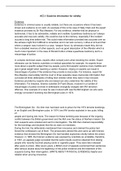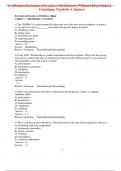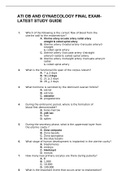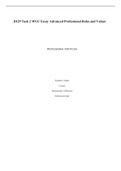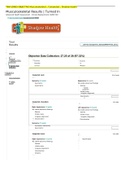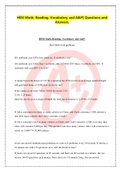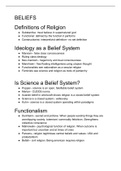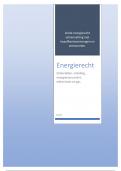Exam (elaborations)
Summary Unit 3 - AC3.1 Notes - WJEC Applied Diploma in Criminology
- Course
- Institution
- Book
These notes cover the entirety of AC3.1 for Unit 3. For use in the Crime Scene to Court Room Controlled Assessment (WJEC Applied Diploma in Criminology). Include sufficient detail and relevant case examples. Achieved top grade A using these notes.
[Show more]
